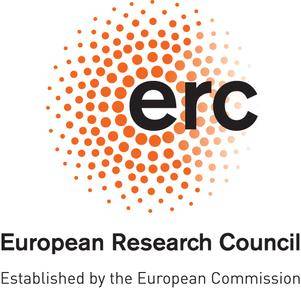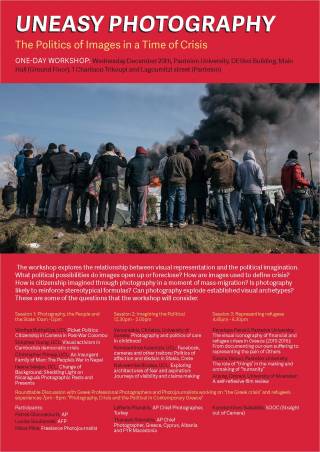Chris Pinney
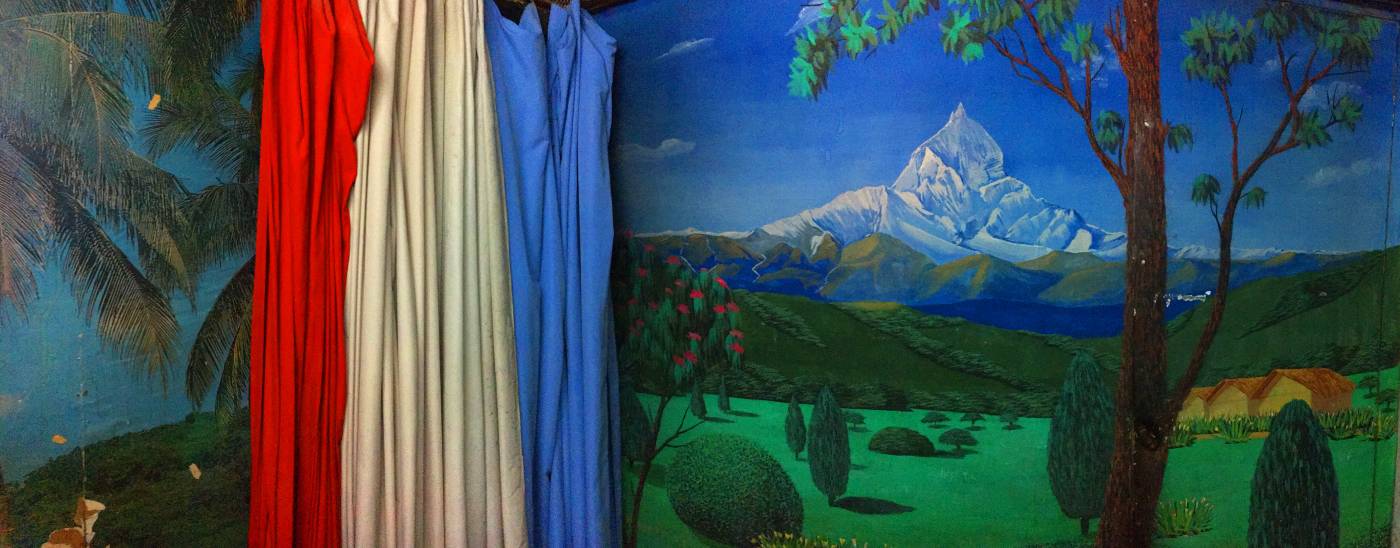
Painted backdrop of Chakra Studios, Kathmandu, showing the ‘Fishtail’ peak, part of the Annapurna Range
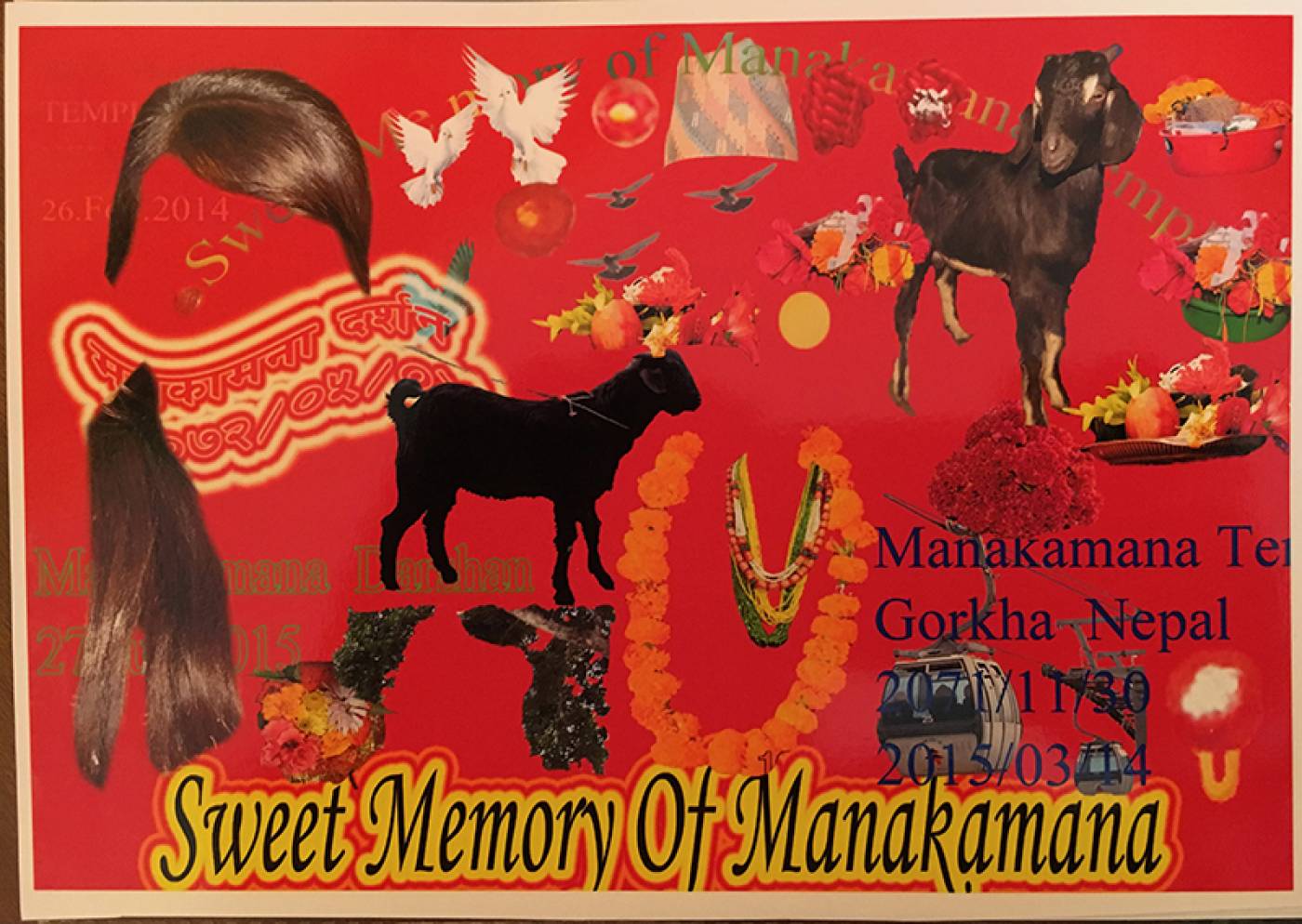
Photoshop assemblage showing the various templates imported from the Manakamana shrine and now used at the Dakshinkali shrine in the Kathmandu Valley.
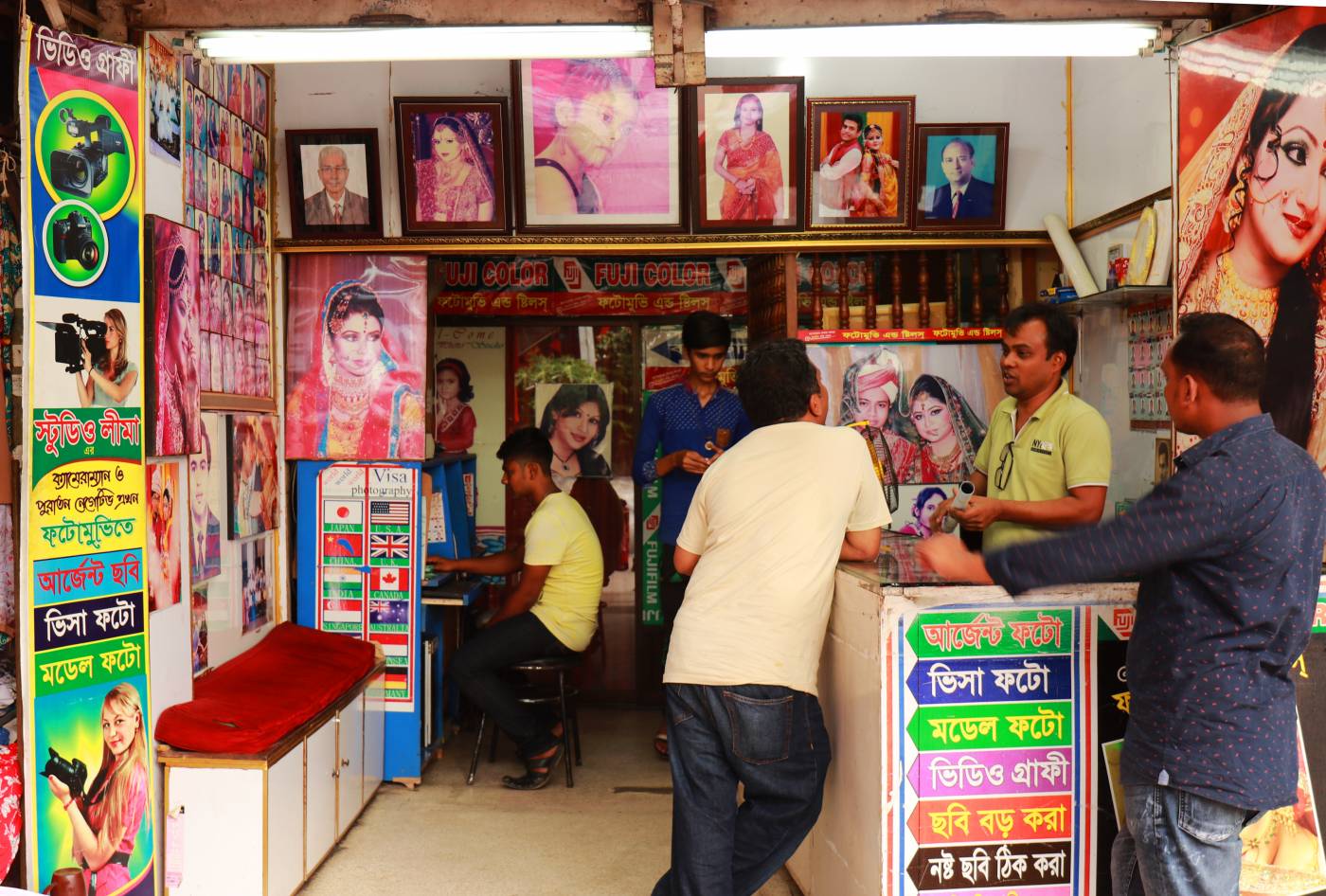
Photo Movie and Stills Studio at New Market, Dhaka.
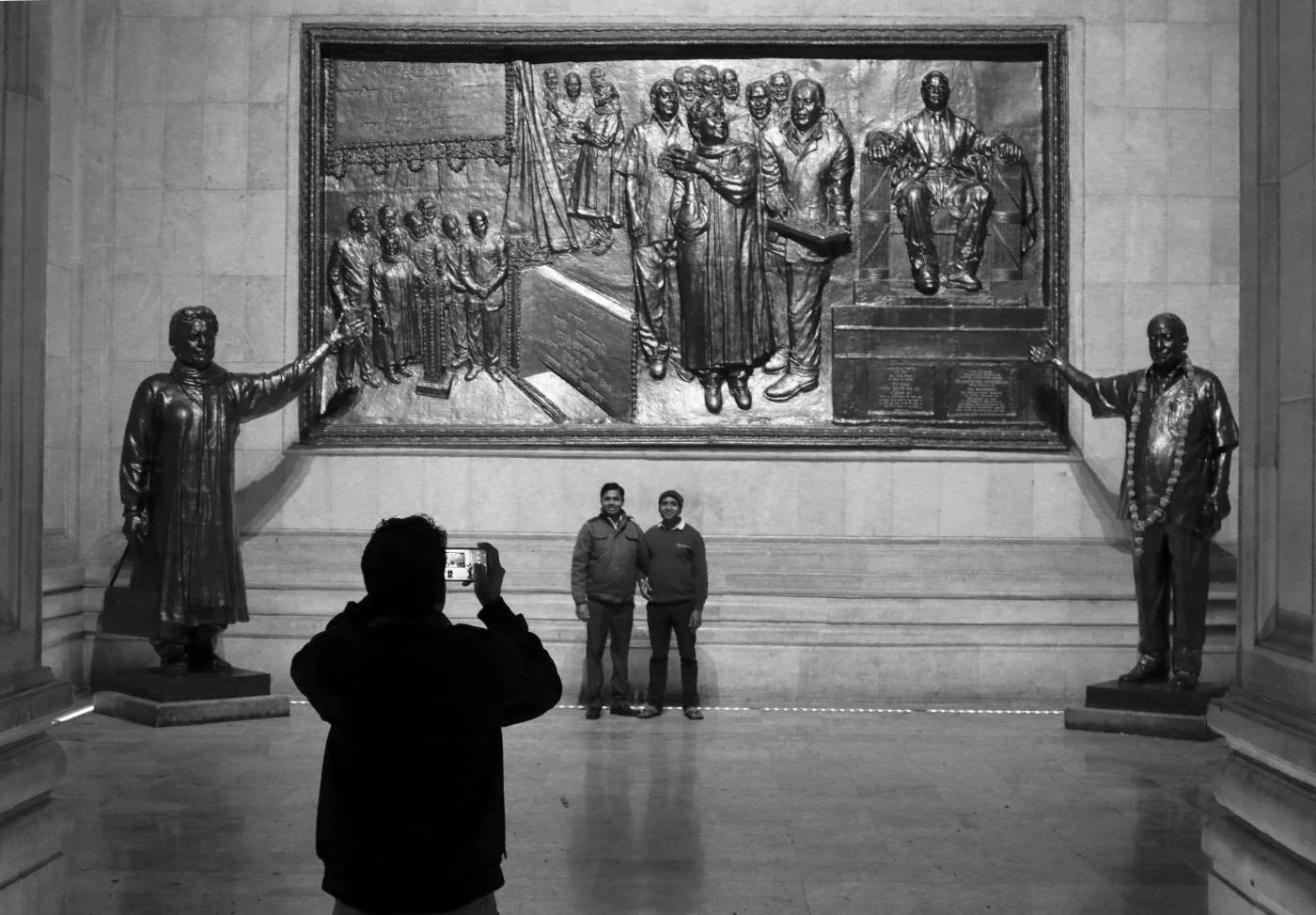
Selfie in front of statues of the Dalit politicians Mayawati and Kanshiram in Ambedkar Park, Lucknow.
Fieldwork has been conducted in Nepal, India, and Bangladesh. Further work remains to be undertaken in Bangladesh and Pakistan. Research in various locations in the Kathmandu Valley (Kathmandu, Dakshinkali, Bhaktapur & Panauti) has proved highly productive. Nepal has a deep and rich photographic history and important institutional and ‘barefoot’ archives. Further, the activities of Nepal Picture Library and PhotoKathmandu have energized local photographic culture. Interviews were conducted with commercial photographers, documentary practitioners, and with active participants in social media. In Bangladesh interviews were conducted with commercial photographers and image consumers in Dhaka, Srimongol and Barisal. In Lucknow work was focused on interactions with photographers in the central area of Aminabad.
The fieldsites explored so far throw up strong continuities and disjunctures, especially in relation to the role that photography plays in reviving and actualizing history, and the role that history plays in current politics. In Nepal the photographic past is strikingly alive and a large number of photographic studios survive in the age of the camera phone. The material traces of past practices in the form of painted backdrops, old analogue equipment, and studio props are easy to locate. This rich and still present history contrasts with findings from Bangladesh and Lucknow in north India where equally rich pasts have a much diminished presence.
In Nepal there is a deep history of photographic practice associated with the Ranas, the erstwhile aristocratic rulers of the country. In certain respects they perform the role of a feudal backstop against which the progress of the modern nation can be measured. If the Ranas represent photography’s connection to a very deep history, they can be juxtaposed with the much more recent history of conflict articulated through the photographic documentation of the 1996-2006 civil war.
In Bangladesh, although there is an equally deep (in fact even deeper) photographic history, because it falls outside of an easily narratable national history there is a general sense that photographable history began with the birth of the current nation in 1971. This date is not only inscribed in the outpouring of photojournalistic records of the calamity of that year (e.g. through Raghu Rai’s recently re-discovered negatives) but also through the use of martyr monuments as backdrops in popular studio images.
In Lucknow, north India, a kind of inverse situation prevails: a city which was literally in large part built by a photographer (Ahmed Ali Khan) and which was intensively photographed by British colonial and other photographers both before and after the Rebellion of 1857-8, has to all intents and purposes deleted that early experience of photography from its collective mind. Increasingly evident are new subaltern identities associated with the Ambedkarite re-imagination of the city.
Dissemination activities (most recent first):
29 October 2018 public discussion with Lukas Birk, MCube, collateral event, Photokathmandu
29 October 2018 presentation with Cristen Chitrakar on history of photography in Nepal, Photokathmandu 2018
11th October 2018, Public discussion with photographer Ketaki Sheth, Photoink Gallery, New Delhi
28 September2018 public discussion with the photographer Ronny Sen at Tarq Gallery, Mumbai.
7th September 2018 “Tokyo, Moscow, Banaras: A Brief History of Street Credibility with Reference to the Photography of William Gedney”, Duke University (in absentia)
October 2018, Panel presentation on “Photodemos: Citizens of Photography”. ASA Oxford
25 May 2018, Keynote lecture at “Modes of Authority and Aesthetic Practices in South and South-east Asia”. École Normale Supérieure, Paris
14 May 2018 Citizens of Photography, Pathshala, South Asian Media Academy, Dhaka, Bangladesh.
13 May 2018, “Citizens of Photography”, Brac University, Dhaka, Bangladesh
10th May 2018, talk on Photoshop and politics in South Asia at department of Anthropology, Jahangirnagar University, Bangladesh
25th April 2018 Gulshan Photo Studio Group, Dhaka,“The History of Photography in South Asia”, Dhaka, Bangladesh
12 October 2017 Dasturzada Dr Jal Pavry Memorial Lecture, Ashmolean Museum, Oxford, 2017 “Event and Code” on images and politics
16 September 2017, talk on studio photography in central India at Tbilisi PhotoFestival (and co-curation of associated exhibition). Tbilisi, Georgia.
15 February 2017“Digital Cows”, conference presentation at Max Planck Institut/Kunsthistorishche Institut, Florence, Italy.
“Evasive Temporalities: Opening the Past in Contemporary Indian Photography’, 26 October 2016, Yalamaya Kendra, Patan Dhoka, PhotoKathmandu, Nepal.
25th October 2016 “Camera Indica Revisted: Popular Photography in the 21st Century”, Martin Chautari, Thapathali, Kathmandu, Nepal.
20th October 2016 “Camera Indica Revisited” Shiv Nadar University, Delhi
August 2016, Visual Anthropology Reading Group: Using Images in the Humanities and Social Sciences (8 sessions with 12 students) Martin Chautari, Kathmandu.
Publications:
2018 Expertly Framed
2018 Ronny Sen
“Bruises and Blushes: Photography Beyond Anthropology” in Hila Peleg and Erika Balsom eds. Documentary Across Disciplines Berlin: Haus der Kulturen der Welt. 2016
 Close
Close


